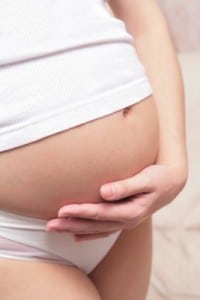
Unfortunately, newborns are extremely susceptible to this disease because they are not immunized until they reach at least two months of age. Infants are also at a very high risk of suffering serious and sometimes fatal complications if they do happen to contract whooping cough. It is for these reasons that health authorities across the world have started to recommend an immunization method known as “cocooning.”
Cocooning includes a number of components – maternal vaccination during or prior to pregnancy is one of the most crucial portions of that recommendation, but it is also suggested that siblings, caretakers, sitters and other individuals that may come into contact with the child be vaccinated. A recent study conducted by Dr. Helen Quinn, Professor Peter McIntyre, Dr. Tom Snelling and colleagues at the National Center for Immunization Research and Surveillance for Vaccine Preventable Diseases, Sydney, based at the Kids Research Institute and the University of Sydney, New South Wales (NSW), Australia, has found that this immunization method can cut the risks of newborn contracting whooping cough by as much as 50 percent.
Done in collaboration with New South Wales Health and presented at this week’s Annual Scientific Meeting of the Australasian Society for Infectious Diseases in Canberra, Australia, the study implemented the cocooning method through general practices and maternity units. It commenced back in July 2008 and followed unfunded national recommendations for cocoon immunizations, which have been in place in Australia since 2003.
Children included in the study were patients of NSW that had been diagnosed with laboratory-confirmed whooping cough during a two-year period (2009-2011). All of the children were aged four months or younger. All of those cases were then matched with up to four, randomly selected controls that were sampled from a register of all NSW-born infants with the same date of birth and area of residence. In all, there were 217 infants diagnosed with whooping cough and 585 control infants.
Researchers collected demographics on all the children along with the vaccination history of the mothers of those infants as well as the vaccination schedule of all other household members. Overall, 75% of the control mothers had received the pertussis vaccine. In the four weeks prior to the index date (date of diagnosis of whooping cough in case infants), 27% of the case mothers and 41% of the control mothers were vaccinated. But most importantly, 26% of the control mothers and 14% of the case mothers had received vaccination prior to delivery of the infants; most of them had been vaccinated within two years of birth, but some of them had been vaccinated up to 6 years prior.
There were a number of significant risk factors found, including living in a large household and less than favorable socio-economic circumstances. Siblings within both case and control homes were often found to be highly vaccinated. However, siblings in case households were also found more likely to be in an age group where the pertussis vaccine had waned than those that lived in the control group. In addition, fathers and grandparents were less likely to have received timely vaccination. However, even after accounting for these factors, researchers found maternal vaccination prior to birth to be effective at cutting newborn’s risk of contracting whooping cough by almost 50%. What’s more, breastfeeding, in addition to maternal vaccination, seemed to add even more protection.
“Timely maternal vaccination was associated with a significant decrease in risk of pertussis prior to eligibility for the second infant dose at four months of age, with the greatest benefit in infants of mothers how received vaccine before delivery,” Dr. Quinn told nzDoctor.co.nz. “This is the first evidence of protection from maternal pertussis vaccination prior to the current pregnancy. It suggests that vaccination as part of pre-pregnancy planning would have the greatest impact on whooping cough infection.”
Now researchers are curious as to whether or not the local and international policies should cover cocooning as a part of the permanent immunization schedule or if it should simply be followed during an outbreak, such as the one currently sweeping through the United Kingdom. Hopefully, a conclusion to this question will be made soon.
Related Articles:
- Study: Vitamin D Levels during Pregnancy has No Impact on Child’s Bone Health Later in Life
- DHA during Pregnancy May Extend Gestational Time for Micro-Preemies
- Woman with Five Organ Transplants Becomes a Mom







The U.S. has made recommendations for moms to get the Tdap vaccine between 27 and 36 weeks’ gestation during every pregnancy regardless of whether there is an outbreak (link:http://www.cdc.gov/mmwr/preview/mmwrhtml/mm6207a4.htm). The Vaccine Education Center at The Children’s Hospital of Philadelphia recently revised our Q and A sheet about pertussis to include this information; the sheet also provides other information about pertussis disease and vaccines: http://www.chop.edu/export/download/pdfs/articles/vaccine-education-center/pertussis-vaccine.pdf.